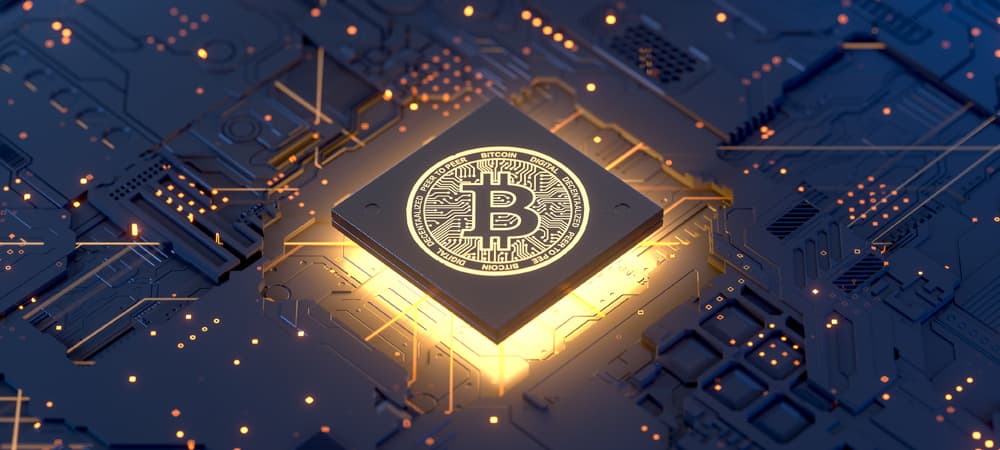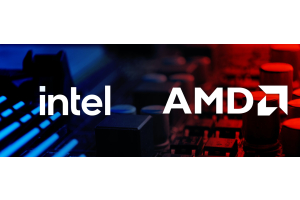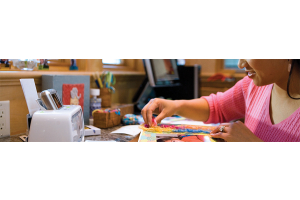We use cookies to offer you a better experience. For more information on how we use cookies you can read our Cookie and Privacy Policy.
Crash Course: Blockchain
May 12, 2020

Blockchain—a digital ledger shared across a computer network—has been a topic of conversation for months. What is blockchain, why is it generating so much buzz, and what does it mean for your business both now and in the future? Here’s a crash course.
What is blockchain?
First implemented to conduct transactions using the digital currency bitcoin, a blockchain is a digital ledger, distributed across a global network of computers, which permanently records digital transactions. Bitcoin isn’t saved in a file somewhere; it’s represented by transactions recorded in a blockchain—sort of like a global spreadsheet.
Every 10 minutes, all transactions conducted are verified, cleared, and stored in a block that is linked to the preceding block, creating a chain. Each block must refer to the preceding block in order to be valid.
Blockchain has many benefits in terms of security and accuracy:
• Only verified transactions are recorded.
• Blockchain can’t be falsified or altered because every block is permanently time-stamped and stored.
• Blockchains are distributed (run on a global network of computers operated by volunteers), so there is no central database that can be hacked.
• Anyone can view blockchain at any time because it resides on a network with no single institution maintaining or controlling it.
• Blockchain is heavily encrypted, so it cannot be hacked.
Why is blockchain a big deal?
Currently, blockchain is used to store records of digital currency transactions. However, a wide variety of startups are developing blockchain-based technology for use in industries ranging from manufacturing to retailing.
Blockchain is garnering the most attention in the financial community. Banks and other financial services companies see the technology as a way to streamline transactions by eliminating paperwork, errors, and jobs. In fact, blockchain deployments are estimated to save banks more than $27 billion annually by 2030.[1]
What does blockchain mean for businesses?
Blockchain has practical applications far beyond the world of Wall Street. They include:
• Processing transactions: This is particularly important for retail or e-commerce businesses.
• Processing micropayments: For example, newspaper publishers could use blockchain to take .003 cents from everyone who reads an online article.
• Raising capital for businesses: Blockchain enables secure, peer-to-peer lending without an intermediary, streamlining and securing the process of peer-to-peer lending.
• Enhanced cloud storage: Instead of information being centralized with the cloud provider, blockchain decentralizes cloud storage, giving you more control of your data.
• Real estate transactions: Blockchain reduces the need for human interaction and paper-based recordkeeping. For instance, it could verify transactions, then record and transfer title or release funds from escrow.
• Supply chain management: Transfer of goods could be documented and payment processed using blockchain, speeding up transactions and reducing human error.
• Healthcare industry: Blockchain can store records securely, record data accurately, and speed up claims processing by reducing errors.
• Human resources: Businesses could use blockchain records to verify job applicants’ employment or education histories directly without using background check services or contacting employers or schools.
• Smart contracts: Blockchain could create and execute contracts with no human involvement. For instance, if a client is going to pay your business $1,000 for delivering a service, all the terms of the arrangement would be programmed into a smart contract. As soon as these terms are met, computers would release the funds and send them to you.
The future of blockchain
For businesses, blockchain is potentially game-changing technology on the same level as the introduction of the internet. It will eliminate the middleman in many industries, starting with those involved in financial transactions.
As a result, it will disrupt entire industries. Just as Uber and eBay disrupted traditional taxi services and auctions, blockchain may make Uber and eBay obsolete. Instead of booking and paying for rides through Uber, or buying products through eBay, individuals can use blockchain to find other individuals willing to give them a ride or sell them a product and conduct a secure peer-to-peer transaction with no intermediary.
Ultimately, blockchain could mean the end of business as we know it, transforming the concept of “business” from a centralized, hierarchical model to a shared, distributed, one-to-one model. The effects of blockchain won’t be felt overnight, but they will be felt in just about every industry. This is a technology that every business owner must pay attention to—both for its potential benefits and its risks. How will it affect your business?
Article reposted with permission from HP Tech Takes






